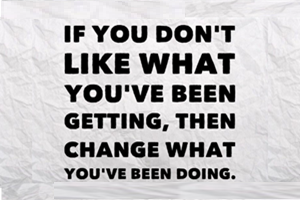SPECIAL EDITION
In the April 28, 2020 Ask The Headhunter Newsletter we take a look at some unusual insights about the job market in the time of coronavirus.
The new job market will be complicated
 Last week I published “COVID-19: Does it kill jobs?” in the News I want you to use feature. My short column pointed to an article by Lani Rosales in The American Genius, an entrepreneur’s publication.
Last week I published “COVID-19: Does it kill jobs?” in the News I want you to use feature. My short column pointed to an article by Lani Rosales in The American Genius, an entrepreneur’s publication.
Rosales offers great advice I think you can use in the new, post-coronavirus-crisis job market, from a perspective we’re not accustomed to. She also offers surprisingly hum-drum guidance that I believe is counterproductive in the new job market. There are so many good suggestions in her column that deserve explication — and so do the not-so-good ones. I think taking a critical look at both reveals a complicated job market in the COVID-19 economy.
I’d love to know what the rest of our community thinks.
Excellent takeaways
These are the excellent takeaways that I find in Rosales’s article.
In this time where an entire workforce has been sent home to work, some folks are going to shine as they are reliable, communicative, and think creatively. Unfortunately, others are going to struggle and sink.
If you’re still employed, you need to assess your value to the business honestly. I’ve talked with people in the past month who were convinced they were going to get laid off due to the COVID-19 crisis (panic is natural), only to find they were among the few most valued workers their employers wanted to keep.
I think Rosales’s point is, if cuts haven’t happened at your company yet, don’t start believing you’re dispensable. Now is the time to show you’re necessary, and to explain to your managers why. In addition to presenting evidence of your value, the attitude you project counts for a lot, too. Merely showing that you want to discuss your role in the company reveals the right attitude. It could save your job.
Sinkers open up critical spots on the team that need to be filled to keep operations moving. That could be a spot free[d] up for you! Further, employers are reconsidering their roster right now. They may be trimming some figurative fat.
Rosales is making a somewhat disconcerting suggestion: Look for opportunities that result when other workers get trimmed. They’re definitely out there.
It’s hard for some to believe: Just because a business is laying people off doesn’t mean it’s not also hiring. It may seem heartless to try and get a job someone else just got fired from. But business goes on. Don’t assume that when someone gets fired the job is eliminated. Look closer. Reach out to insiders. That job may get re-filled, and it may be yours next.
Additionally, companies are looking at their future hiring needs for “when this all ends,” and we’re being told that many companies are currently hiring for the summer, which sounds far away, but is about as long as the hiring process often takes anyhow.
Anyone who gets too maudlin about the downturn forgets there will be an upturn. Rosales correctly cautions that you just cannot afford to do that. When the upturn comes, you must have been preparing for it starting now. You’re not going to get a job in three or six months if you wait for the upturn to start looking. The time to identify fundamentally sound companies is now. The time to reach out to your contacts for introductions to these companies is now.
Complicated reality
So should you even bother applying for jobs right now? The answer is: Yes, absolutely, but you’re going to have to change your approach.
I agree with Rosales that people are so attached to the way they normally search for a job, they’re likely to miss the boat. But I disagree with the next part of her advice. The new reality will be more complicated.
Getting a job will not be about buying a new resume, or about hiring a coach to kick you in the butt everyday for thousands of dollars in fees each month, or about keywords, or online applications, or knowing how to get past the applicant tracking systems (ATSes).
Getting a job is about what it’s always been about — except I think even more so now. It is estimated that 40-70% of jobs are found and filled through personal contacts. I think that’s going to change — it’s going to be a lot higher.
As we shift from the new reality of 20% (possibly higher) unemployment to an upturn in hiring, the online fire hose of job applicants will flood HR departments with the pressure of millions more applicants. I believe that the best managers will accelerate hiring by doing their own recruiting.
Recruiting will be more personal
For all her excellent advice, I think Rosales is wrong when she falls back on discredited methods. I think managers are likely to reject HR’s shot gunning the online resume databases. Besides, do you really want to compete with an extra 26 million unemployed people looking for work on Indeed and LinkedIn? Nobody in any HR department — and no algorithm — can filter that fire hose for the best hires.
Recruiting and hiring will get more personal, mainly because the best, most valuable job candidates will not tolerate the rude, dismissive, “scrub ’em up and get ’em ready” style of HR that’s dominated the employment system.
Managers will turn even more to their trusted personal contacts for candidate referrals. They will know that every hire will count because budgets will be tight and hiring mistakes will be costly. I think managers will work harder to attract and hire the best candidates. As a job seeker, knowing how to tap those insider circles will be absolutely critical.
Trying to game the databases and algorithms using Rosales’s suggestions will sink you, mainly because fewer jobs will likely be re-filled than existed two months ago.
While I’m not a big fan of video interviews, I think Rosales is correct that you need to learn how to present yourself in a video interview. Companies are not going to pay to bring candidates in from out of town, and managers will seek to use technology to speed up the process even while they try not to let technology dumb it down. Check her suggestions about this.
The best resources are human, but not HR
Rosales says:
Every application you submit should be refined for that specific employer. Before applying, read the job posting three times in a row. Then, read the company’s Career page, their About page, and see what they tweet. This will all tell you what’s important to them (plus, the keywords you’ll need to use to get past the applicant tracking system robots and into the hands of a humans are IN THE JOB LISTING, so use them).
Rosales is absolutely right about refining your approach to every employer. But studying a company’s Career and About pages, and its tweets, and researching its business in the trade and financial press is just the ante to get into the game.
The serious players will invest their efforts in figuring out the problems and challenges of the companies and departments they want to work in. They will identify and familiarize themselves with the manager they want to work for. It’s not about reading; it’s about contacting insiders and people who do business with your target company and asking them for insight and advice. It’s about creating shared experiences that build trust. This leads to personal connections that lead to referrals to hiring managers.
With due respect to Rosales, any effort you make that involves direct contact with humans will pay off much better than diddling your keyboard.
Forget about applying for 100 jobs
I think this is Rosales’s best insight and instruction:
Take the time to get to know each company before introducing yourself, it’ll make an immediate difference. This is why you can’t really apply to 100 places in one day, it’s unrealistic and puts you at a disadvantage.
You can’t apply for hundreds of jobs because you can’t do the prep work required to show a manager how you’ll be the profitable hire at all those companies!
Being the profitable hire means preparing a mini business plan for how you’ll do each job in a way that will add to the company’s bottom line. Yup — that’s a boat-load of work! Who does that, wins the job. That’s your competition, not some keyboard pounder worried about keywords and algorithms.
Do it right: take the shortest path
In these desperate times, your only choice is to take a deep breath and approach job hunting the right way, knowing that companies are shuffling the deck right now. It won’t be in fast motion, but there’s a chair for you about to open up, and you should be pushing your hardest to be the one to fill it.
Again, this is why I shared Lani Rosales’s article with you. I agree with her that the stakes today require that you search out and win a job the right way. But the only way to be the one to fill the job is to not be like everybody else swarming the HR department through the ATS — the old way.
Don’t follow the herd into ATS oblivion. In the COVID-19 job market, get off the road. Take the shortest path to the hiring manager — through trusted contacts the manager will turn to for referrals of good people the manager can hire quickly and depend upon to do the job profitably.
How will the job market be different in the wake of COVID-19? Which of Lani Rosales’s suggestions do you think are best? Are you job hunting now? Why or why not?
: :
 Working without a net
Working without a net



 The easy answer would be that you’ve just been unlucky and that you got caught in a series of unfortunate downsizings through no fault of your own. But that would make for a very short column.
The easy answer would be that you’ve just been unlucky and that you got caught in a series of unfortunate downsizings through no fault of your own. But that would make for a very short column.
 Last week I published “COVID-19: Does it kill jobs?” in the
Last week I published “COVID-19: Does it kill jobs?” in the 


 I had a contract job with a staffing firm that officially ended a couple of months back. The firm said that they were still looking for other clients to send me to, but just now told me that I’m released.
I had a contract job with a staffing firm that officially ended a couple of months back. The firm said that they were still looking for other clients to send me to, but just now told me that I’m released.
 Special Edition
Special Edition
 I was once asked for my tax returns after a job interview, evidently to determine a job offer. I thought you priced a salary to a job — not what you might have to pay a candidate to hire them. I declined the job because the request displayed the kind of people I would be working for. They were forced to sell the company shortly thereafter. What’s your opinion on how to set a salary and job offer?
I was once asked for my tax returns after a job interview, evidently to determine a job offer. I thought you priced a salary to a job — not what you might have to pay a candidate to hire them. I declined the job because the request displayed the kind of people I would be working for. They were forced to sell the company shortly thereafter. What’s your opinion on how to set a salary and job offer?
 I am in deep turmoil right now. For quite a while I was not getting any calls let alone interviews.
I am in deep turmoil right now. For quite a while I was not getting any calls let alone interviews. 



 I tore my ACL playing volleyball. I just got over the hurdle of getting hired, but my new employer doesn’t know about my injury. I start next week and I am hoping to schedule my surgery in the next couple of months. However, I am not sure how to have this conversation with my new employer. Do I pretend as if the injury is new? Do I tell them that my surgery is already scheduled? I will be out for 7-14 days after surgery, although I am hoping I could work from home after the first 7 days. How do I approach this conversation? Any advice would be so helpful!
I tore my ACL playing volleyball. I just got over the hurdle of getting hired, but my new employer doesn’t know about my injury. I start next week and I am hoping to schedule my surgery in the next couple of months. However, I am not sure how to have this conversation with my new employer. Do I pretend as if the injury is new? Do I tell them that my surgery is already scheduled? I will be out for 7-14 days after surgery, although I am hoping I could work from home after the first 7 days. How do I approach this conversation? Any advice would be so helpful!